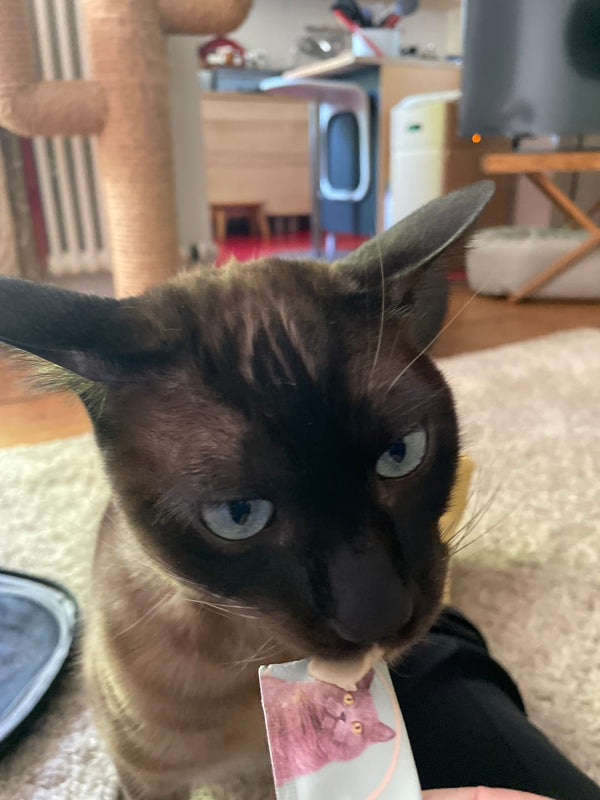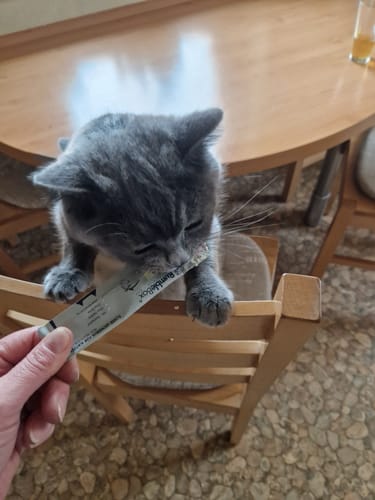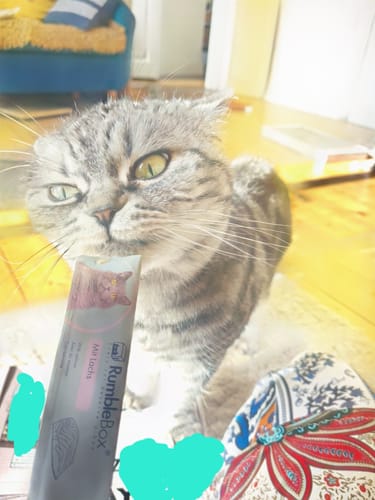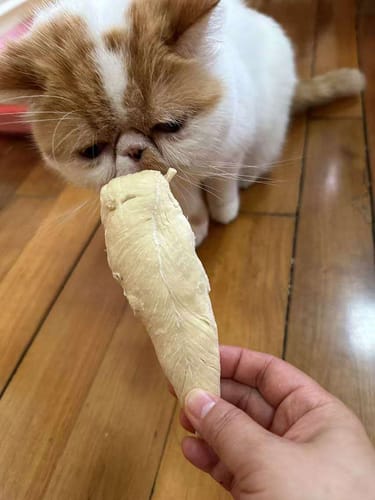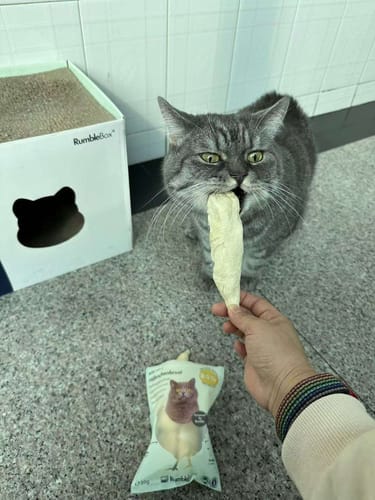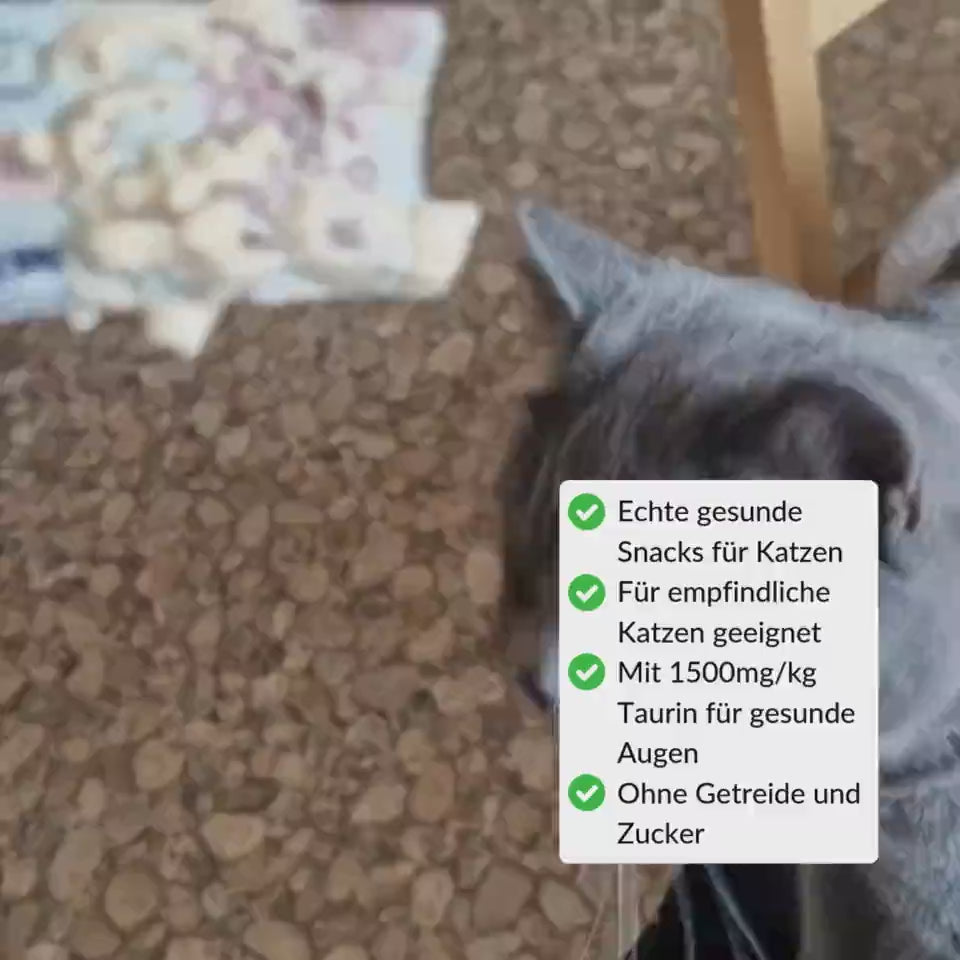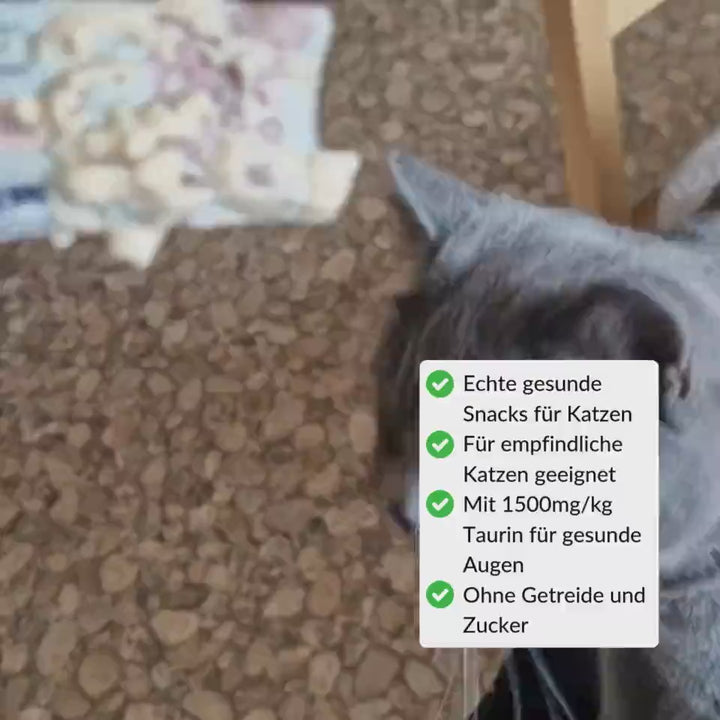4 Cat Sounds: Why Do Cats Meow and What Does It Mean?
Cats can communicate a lot of information to us through their sounds, especially when cats meow - from "I'm hungry" to "I need comfort". Some cats meow in a friendly way, while others sound more angry. In this blog we look at the different sounds that cats make. This will help you understand your pet better.
Cats Meow: How to Interpret Cat Noises Correctly
Cat sounds are one of the main ways cats meow when expressing their emotions and needs. Cat language consists of relatively few basic sounds, but is extremely expressive. Cats don't have as many words as humans. But they can say a lot with a few key meow sounds.
-
Kittens often meow to get their mother's attention or to demand food. At the same time, they often purr to show that they are comfortable and content.
- Adult cats use cat language sounds to interact with humans. They use different meow sounds and tones to express themselves.

There are different types of meowing:
- Short, high-pitched cat meow : Usually a friendly greeting: “It’s great to have you back!”
- Long, loud cat meow : “I need something – maybe food or attention.”
- Whining : A sign of frustration or impatience, often near feeding time.
Fact : Studies show that cats don't just communicate through sounds. They can also recognize and respond to their owner's voice.
Cats Purring: More than Just Contentment?
Purring is one of the most recognizable cat sounds cats make. It's the soothing hum we hear when our cat is on our lap. But did you know that purring isn't always a sign of relaxation?
A common misconception: Cats only purr when they are happy. Wrong! Cats also purr to calm themselves when they are in pain or stressed.
- Relaxed purring : “I feel safe and secure.”
- Purring under stress : “I’m not in my comfort zone, but I’m trying to stay calm.”
Fact : Studies have shown that cats purr at a frequency between 25 and 150 hertz. This frequency can aid in the healing of bones and tissues. This is why cats are often said to have "healing powers."
Hissing and growling: the ultimate warning signal
Cats are often cuddly and loving, but they also have their limits. If your cat hisses or growls, it is telling you very clearly: "Stop, this is the end!"
- Hissing : “I am angry or afraid.” It is the first warning shot, usually accompanied by raised fur and retracted ears.
- Growling : Another sign of anger, often before a possible attack.
Chattering and Cackling: The Hunter in Your Cat
You may have noticed your cat sitting at the window watching birds. Sometimes it makes a “chattering” or “cackling” noise. This behavior shows its innate hunting instinct.

An interesting fact : Cats chatter to simulate the neck bite they would use when hunting. This is part of their natural hunting instinct.
- Chattering : “I see the prey, but I can’t reach it.”
- Cackling : Expression of frustration because the prey is out of reach.
Talkative cats: Some love to chat
Some cats are real chatterboxes and meow almost constantly, while others are more quiet and reserved. Breeds such as the Siamese or Oriental Shorthair are particularly talkative and are known for constantly "talking".
- Constant cat meowing : “I want to play!” or “I need your affection.”
- Constant whining : “Maybe you forgot me? I’m still here ."
Tip : If your cat is a chatterbox, be prepared for lots of “conversations” – and don’t forget to spoil her every now and then. 😉

Cat and Health: When the Sounds Become Different
The sounds your cat makes can also indicate health problems. If your cat suddenly sounds different or certain sounds occur more frequently, this could be a sign of pain or discomfort.
- Sudden Silence : A normally talkative cat who suddenly becomes quiet may be in pain or ill.
- Altered purring : If your cat is purring unusually often, he may be trying to soothe himself.
- Frequent, loud cat meowing : This could indicate health problems such as hyperthyroidism or bladder problems.
Question : Has your cat's voice changed? Is he showing any other signs? Does he have no appetite? Has he lost weight? Has his behavior changed? If so, take him to a veterinarian immediately.
Understand your cat's language
Cats don't meow for no reason - there is a meaning behind every sound. Whether it's the happy "meow", the soothing purr or the warning hiss - every cat has its own voice and way of expressing its needs.
So, the next time your cat meows excitedly or purrs on your lap, remember: she's talking to you! Take a moment to understand her "words" and give her the love and attention she deserves. For more tips and info, visit our blog !🐱💕
Thank you for reading this far – it really means a lot to us! We hope you found something useful and maybe your cat is already looking forward to a little something extra. See you soon and lots of purrs!
By the way
Many cat owners pay close attention to the ingredients in their cat's main food , but often forget about treats .
Snacks often contain sugar, grains and artificial additives that can be harmful to health in the long run.
Anyone who truly wants to feed their cat a completely healthy diet should also rely on natural ingredients here:
Hypoallergenic treats without additives – naturally from RumbleBox. Perfect as a reward, during training, or simply as a snack.
Over 2,500 cats have already switched to healthy snacks!
💚






